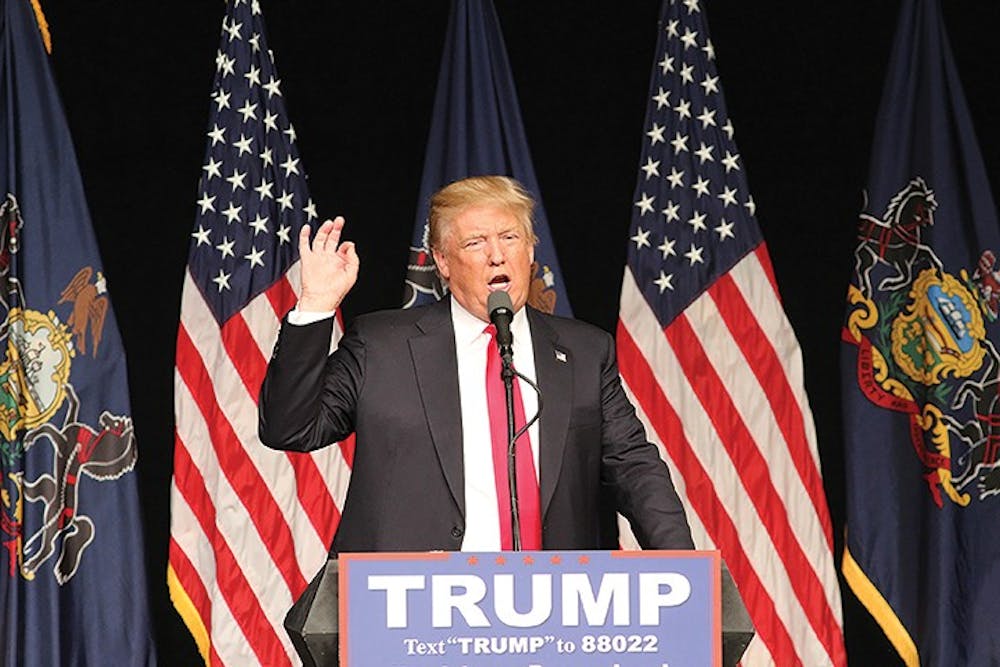A Washington Post journalist went missing nearly a month ago, yet the mystery surrounding his disappearance continues.
Jamal Khashoggi, a global opinion columnist who was very outspoken against the Saudi Arabia government, was last seen walking into the country’s consulate in Istanbul.
The Saudi Arabian government has been vague on the circumstances surrounding Khashoggi’s death, and only last week admitted that he died during a “fistfight” after entering the consulate.
Meanwhile the U.S. government has been just as, if not more, vague.
President Donald Trump sent Secretary of State Mike Pompeo to Saudi Arabia to investigate the disappearance, but was hesitant to place blame or even condemn the murder.
Trump later said he had spoken with Saudi Arabia’s king, who “firmly denied” the allegations of his country’s involvement — denials which Trump seemingly believed. He even went so far as to suggest “rogue killers” may have murdered Khashoggi, as opposed to the Saudi government.
If that was not far enough, Trump took his defense of the Saudis to a new level last week.
In an interview with the Associated Press, he likened the condemnation of the alleged Saudi murder of Khashoggi to the sexual assault allegations against Brett Kavanaugh during his confirmation to the Supreme Court.
“I think we have to find out what happened first,” Trump told AP. “Here we go again with, you know, you’re guilty until proven innocent. I don’t like that. We just went through that with Justice Kavanaugh and he was innocent all the way as far as I’m concerned.”
Though he later took a more aggressive stance against the Saudi government, the damage was already done.
Trump — already defensive from the Kavanaugh turmoil and an avid opponent of the media — has certainly used the “innocent until proven guilty” defense in the past, but only when it has been most convenient for him.
During his presidential campaign, Trump repeatedly referred to candidate Hillary Clinton as “Crooked Hillary” and encouraged supporters to chant “lock her up” in regard to her email scandal.
Not at any time did you hear him stop and say “Well, we should wait for the judicial process to run its course.” Yet he is asking for a Middle Eastern country with rocky world relations to be treated without suspicion in regard to the high-profile murder of an American resident.
It also does not help that Trump has had numerous conflicts with the American media. He has shown little support for what journalists do, unless they are giving him praise.
Several days after making the “guilty until proven innocent” comment, for instance, Trump praised Rep. Greg Gianforte (R-Mont.) for punching a journalist last year.
This is the kind of world we live in today — a world where our president protects only those that support his agenda and logic, despite promises made after his election. Journalists, many of whom come from respected news organizations, fear for their lives and credibility — very similarly to how sexual assault accusers are treated.
We condemn the president’s treatment of the investigation into Khashoggi’s disappearance, as well as his continued doubt over these women’s accusations.
It is true that our justice system is based on the concept of “innocent until proven guilty.” But it is also based on taking accusations seriously through investigation and giving people a safe space to come forward.
The federal government’s protection of Saudi Arabia exposes the U.S. for what it is becoming — weak.
Whether you are a Republican or Democrat, it is sad to witness our country’s democracy slowly shrivel into a shell of its former self.
How many felonies is it going to take before someone breaks the cycle? For the country’s sake, we hopefully will not have to wait long to find out.



The Slate welcomes thoughtful discussion on all of our stories, but please keep comments civil and on-topic. Read our full guidelines here.